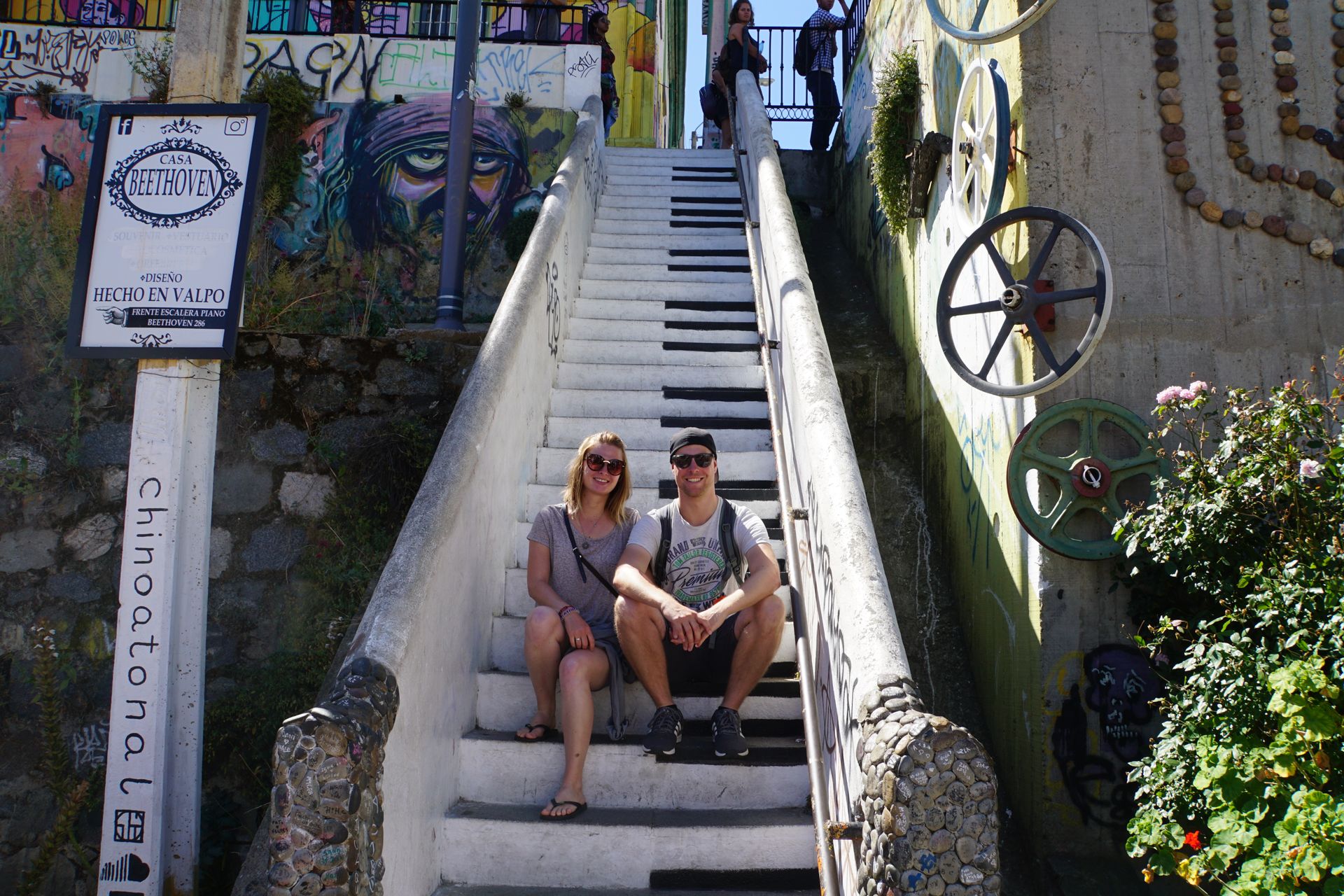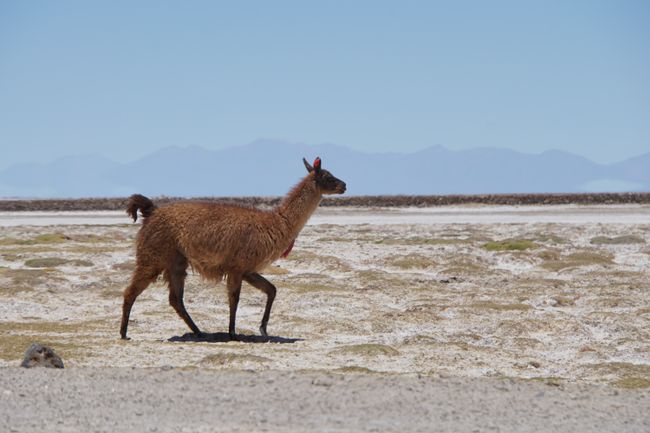Rotorua and Coromandel
प्रकाशित: 27.02.2019

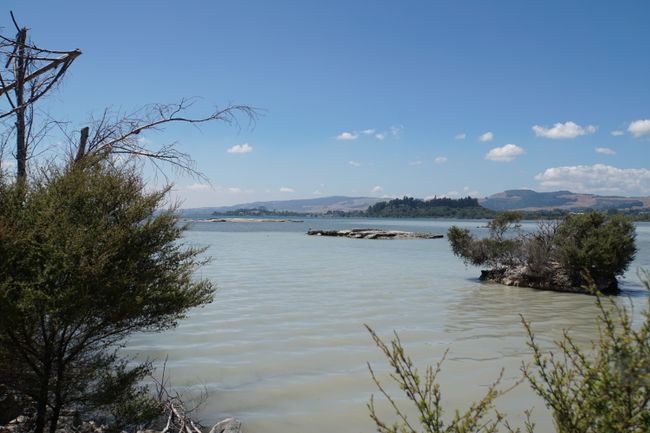
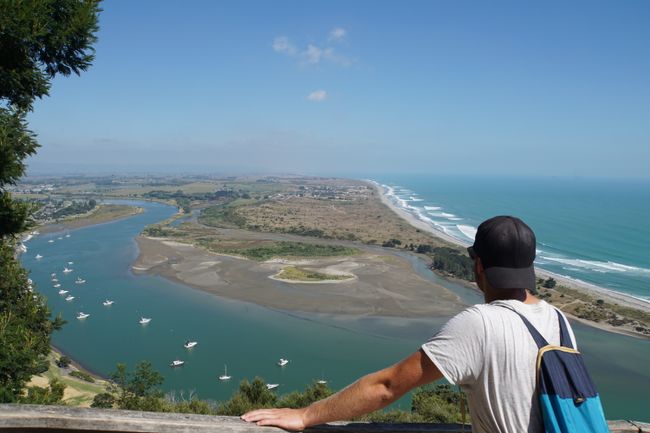
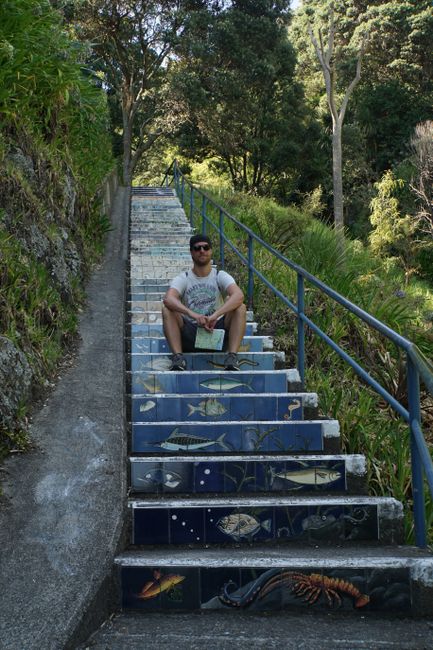
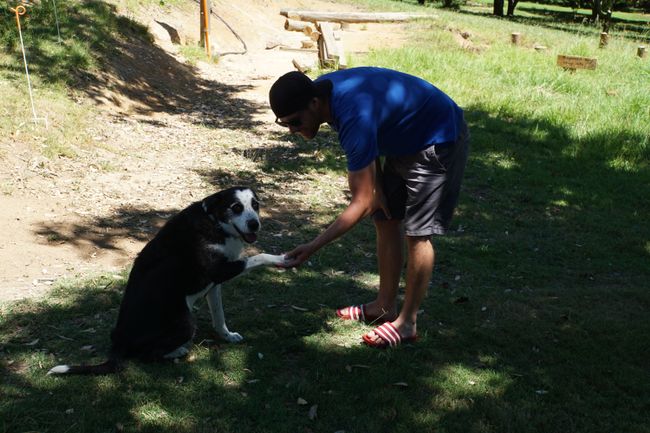
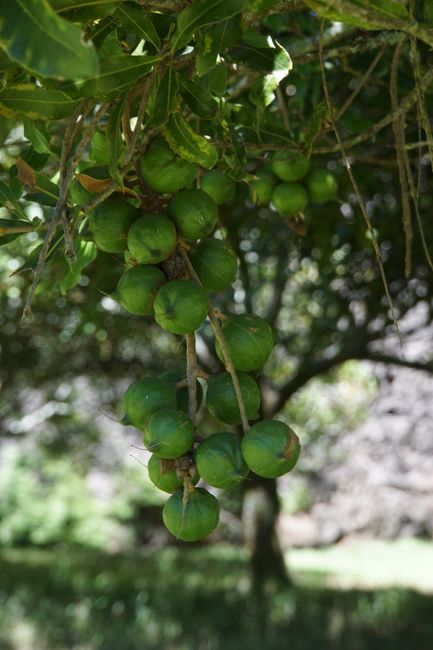
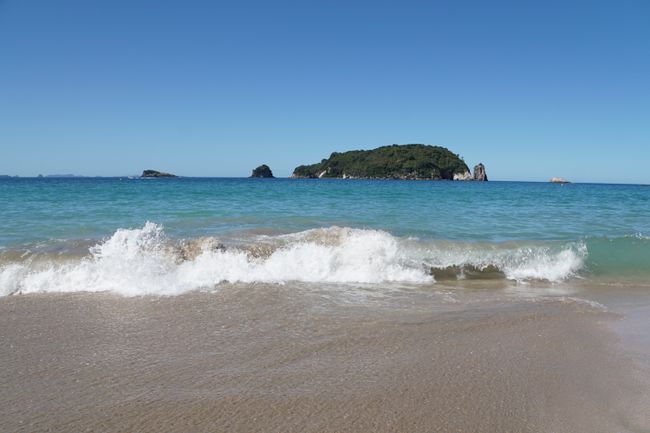
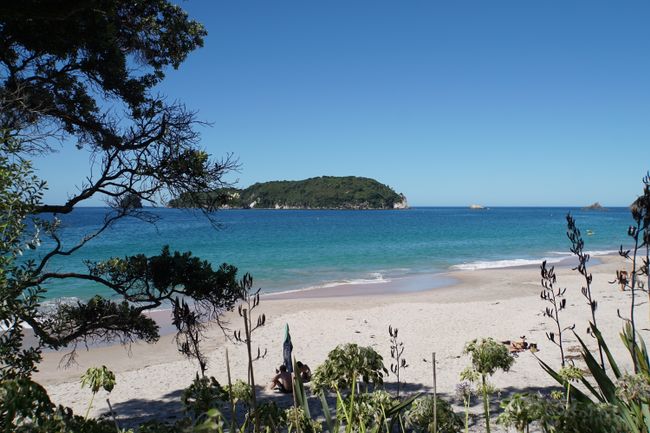
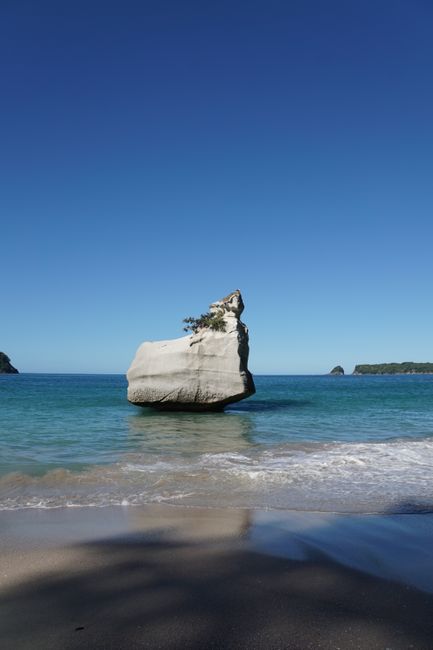
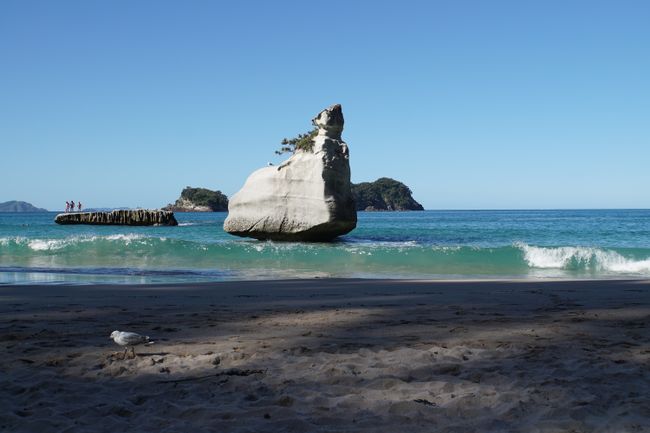
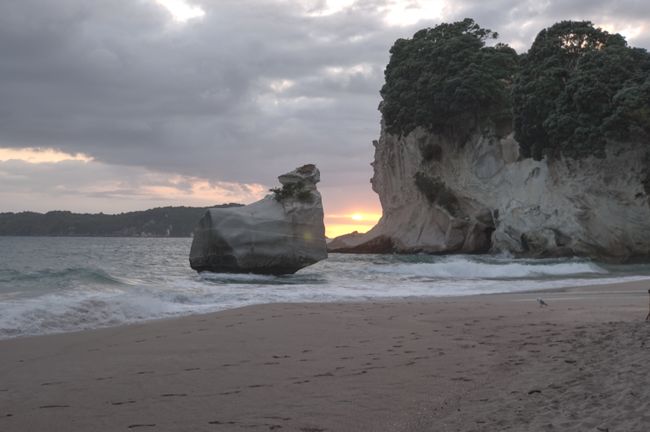
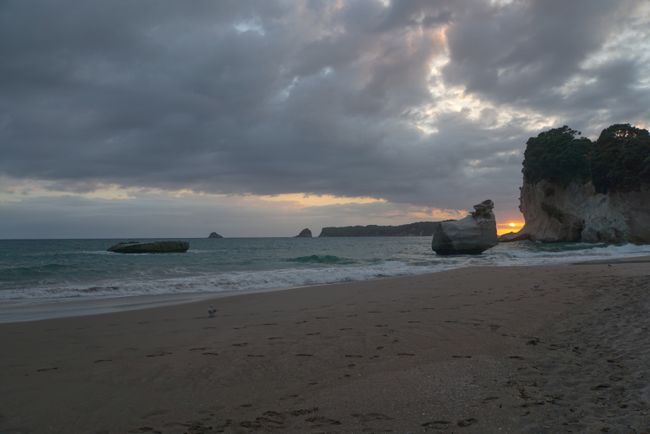
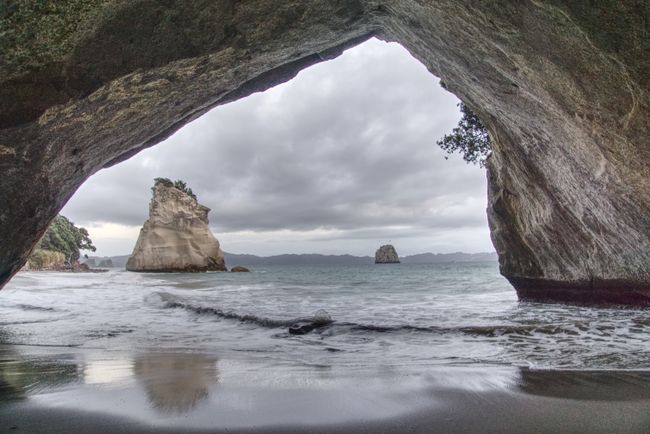
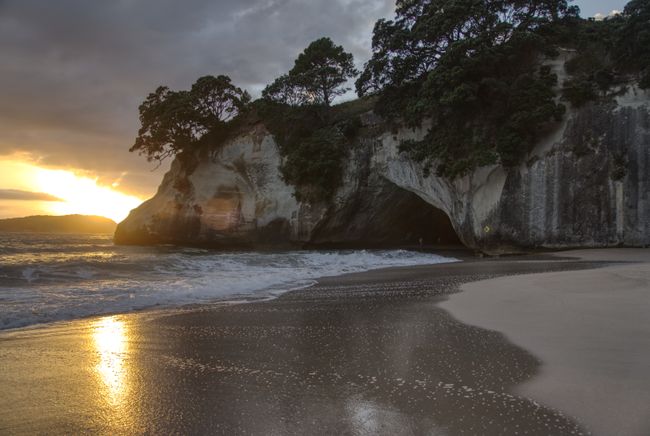
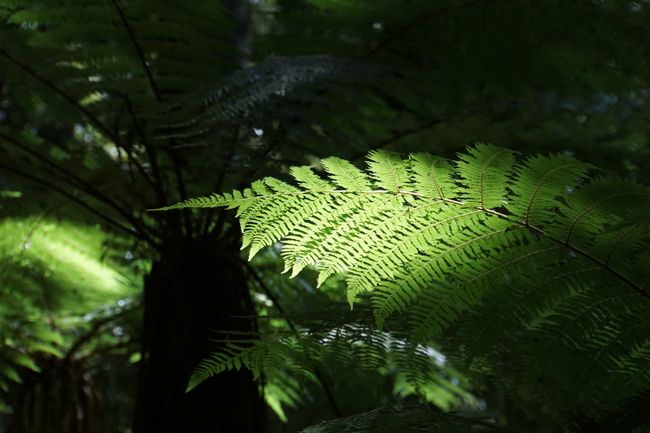
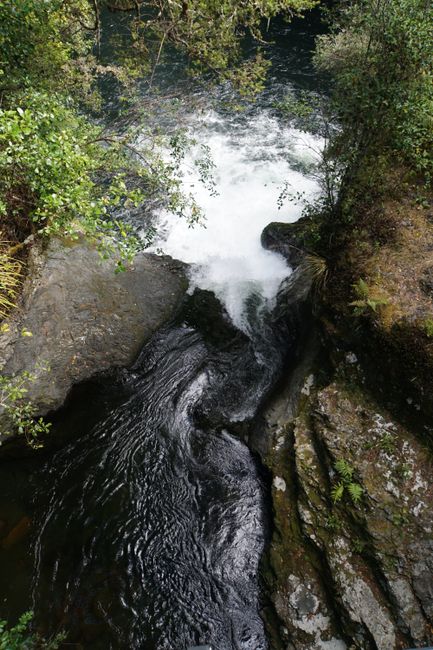
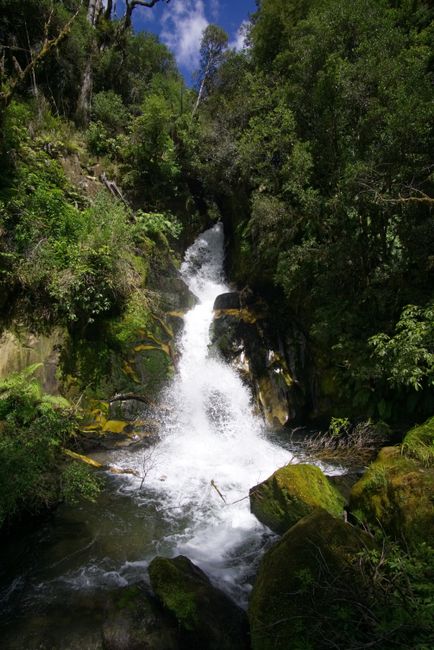
समाचार पत्रिका के लिए सदस्यता लें
After our - rather involuntary - tire change in Matamata, we continue to Rotorua. It is now afternoon and we are a little exhausted from all the stress. We write to Lisa (whom we met at Tongariro Alpine Crossing) that we are coming to Rotorua and which campsite we plan to stay at. When we arrive at our campsite, she is already sitting comfortably in a camping chair. She had chosen the same spot - what a funny coincidence! We exchange our experiences of the day and decide that we want to travel together for the next few days until we have to go south to catch the ferry and Lisa heads back home. In the evening, we only go to the hot pool. The spa facility at our campsite offers three different hot water pools, filled with thermal water at different temperatures. Since Rotorua is the largest geothermal area in New Zealand, hot water bubbles up from the ground everywhere, so it can easily be directed into the pools and spas that are found on every corner. The next morning, we want to take a closer look at Rotorua, especially the Government Gardens, a public park that is partly designed as a garden.

The Rotorua Museum, which is currently closed (and will apparently remain closed for the next 2-3 years due to cracks in the walls), offers a free tour of the gardens. By chance, we find the corresponding sign and since it fits with the time, we take advantage of the offer directly. An old lady named Shirley guides us through the garden and tells us all about the old bathhouses, the sulfur and hot water springs, and delightful anecdotes about the people after whom various buildings and places are named. For example, we learn that the Rachel Pool is named after an English beautician who was concerned with the beauty and youthfulness of the bath guests in one of the spas here. However, Shirley wouldn't name anything after 'that woman', who apparently deceived some very vain guests for certain favors in exchange for her silence.
From Shirley, we also learn that the old bathhouse in the above photo used to be a casino or a bar with a dance floor after the closure of the bathing establishment and now houses a museum. Actually, the tour she offers takes place in the museum, but it is currently being made earthquake-proof and is unfortunately closed. A tea house in Maori style can also be found in the garden. After the tour, we stroll through Rotorua for a while and then continue to Whakatane. There we actually wanted to go to the White Island, the only active volcanic island in New Zealand. It is said to look like a lunar landscape. However, in Whakatane we realize that we should have booked at least 14 days in advance. So we decide to go for a hike the next day and then continue towards the Coromandel Peninsula.

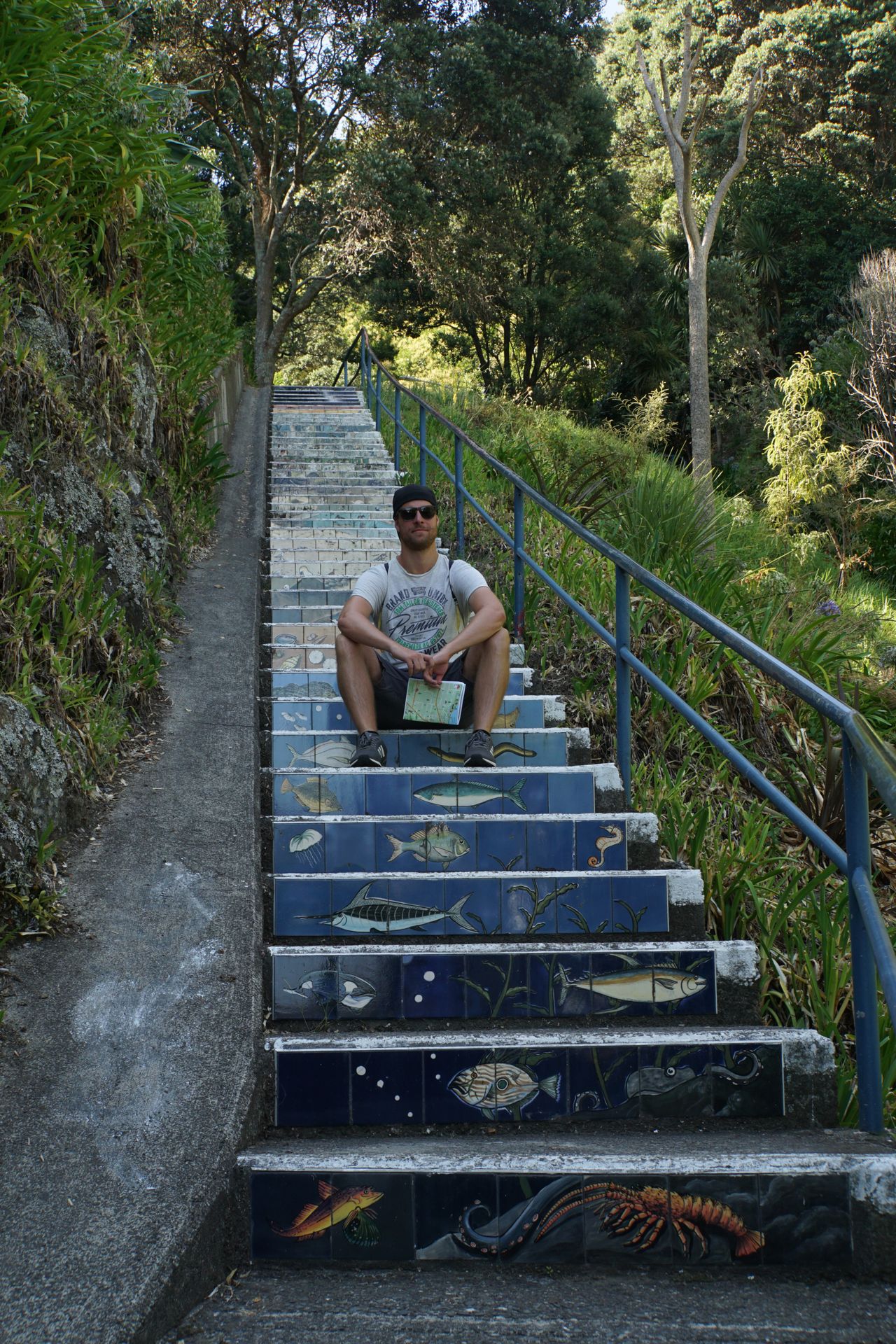
A tiled staircase on the hiking trail masterfully showcases the flora and fauna of New Zealand from the seafloor to the cloudy sky
The two-hour hike in the morning turns out to be unexpectedly strenuous as it is very hot and the sun is beating down mercilessly on us. Back in Whakatane, we refresh ourselves with an ice cream (thanks again to Lisa!) and then continue to Wahei Beach. There we find a nice campsite, which also entices us with a warm swimming pool, which we immediately take advantage of upon our arrival. It should be noted that although it gets really hot during the day here on the North Island, it cools down considerably after sunset. It is slowly becoming autumn here in February.
The next morning we continue to Hahei. There, under good conditions, you can apparently snorkel/dive very well and take various boat trips to Cathedral Cove. We visit a tour provider and inquire about the conditions, but then decide against a snorkeling tour as it is quite expensive. Instead, we prefer to dine at the Church Bistro, a small but very fine restaurant in an old wooden church. Before that, we visit a macadamia nut farm recommended to Lisa by her friends. There, we buy all sorts of macadamia nut products - from delicious oil to roasted nuts to the finest honey. Markus is only halfway paying attention, as he is charmingly distracted and the extremely affectionate dog thanks him when we say goodbye.
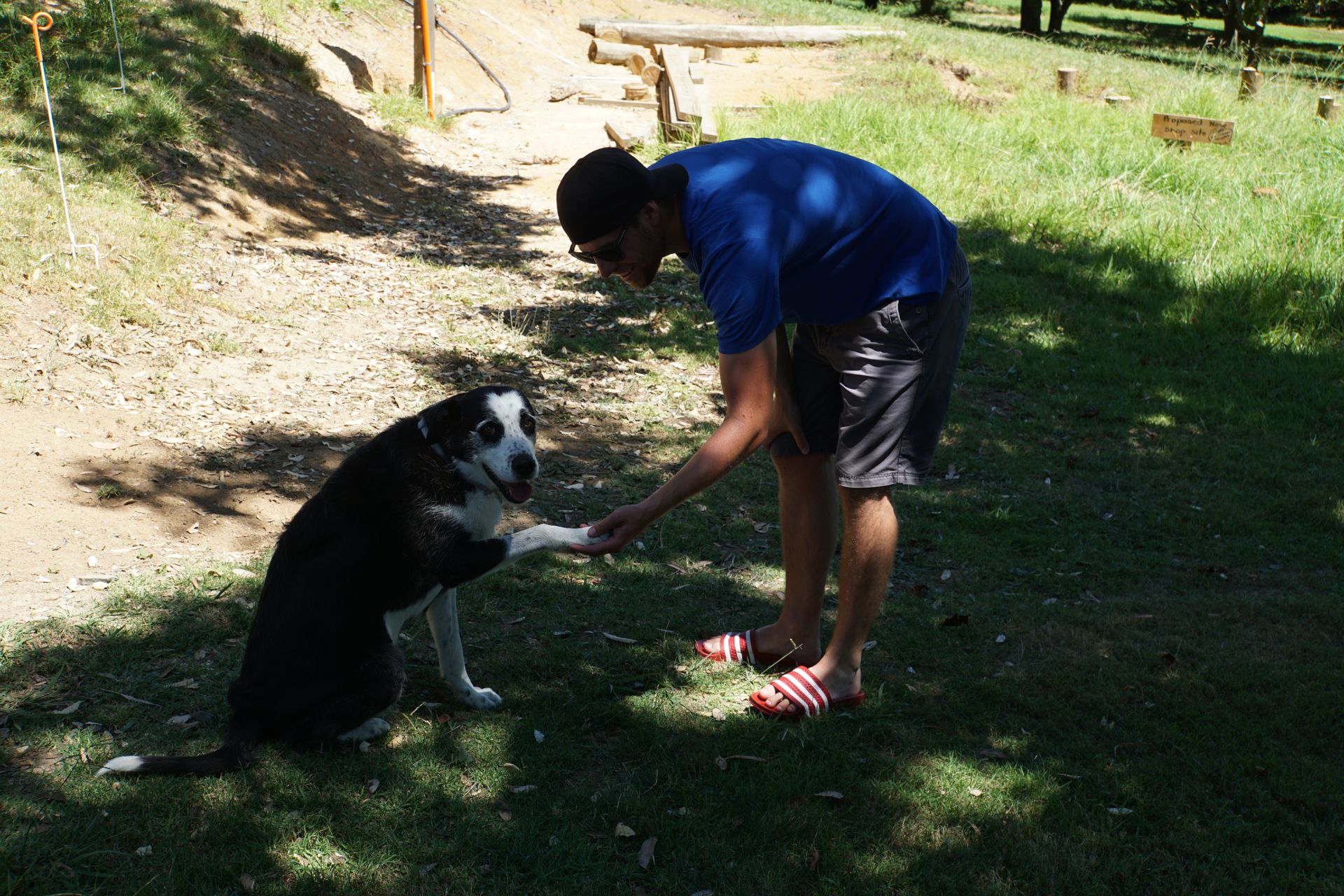

Back at the campsite, we make our way to Cathedral Cove, which takes about an hour and a half. The bay is located in a very nice sheltered location and features the Cathedral Cave. This cave gets its name from its pointed ceiling and connects Cathedral Cove with Mare's Leg Cove. On this hiking trail, Coromandel offers everything that makes this peninsula so popular. We hike over golden beaches and dip our feet in turquoise seawater. Then we walk through a piece of green fern forest and again and again, we can take a detour to other small and almost deserted coves. Even though the sky is gradually clouding over, the views are beautiful and often spectacular.
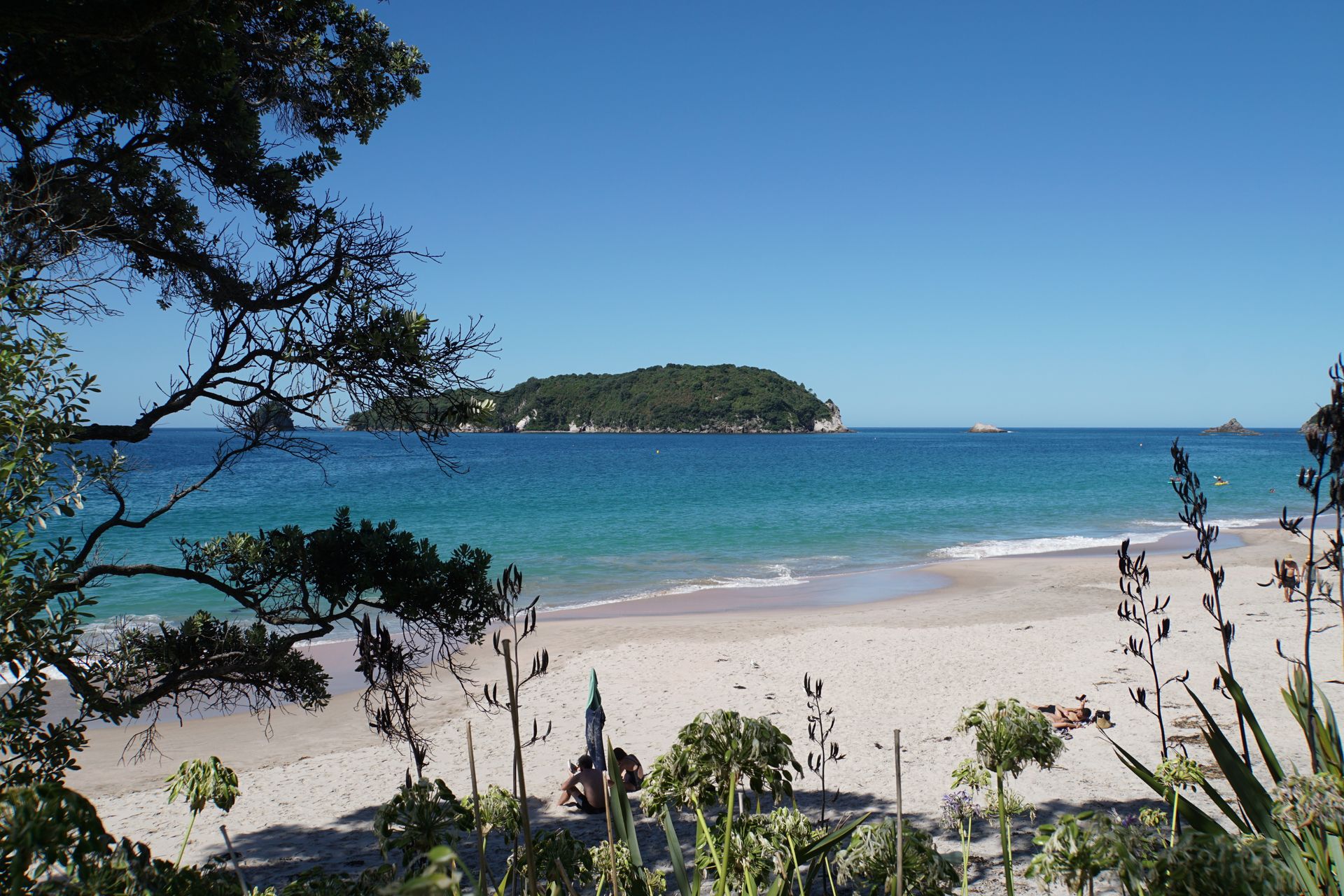
On the way from Hahei to Cathedral Cove
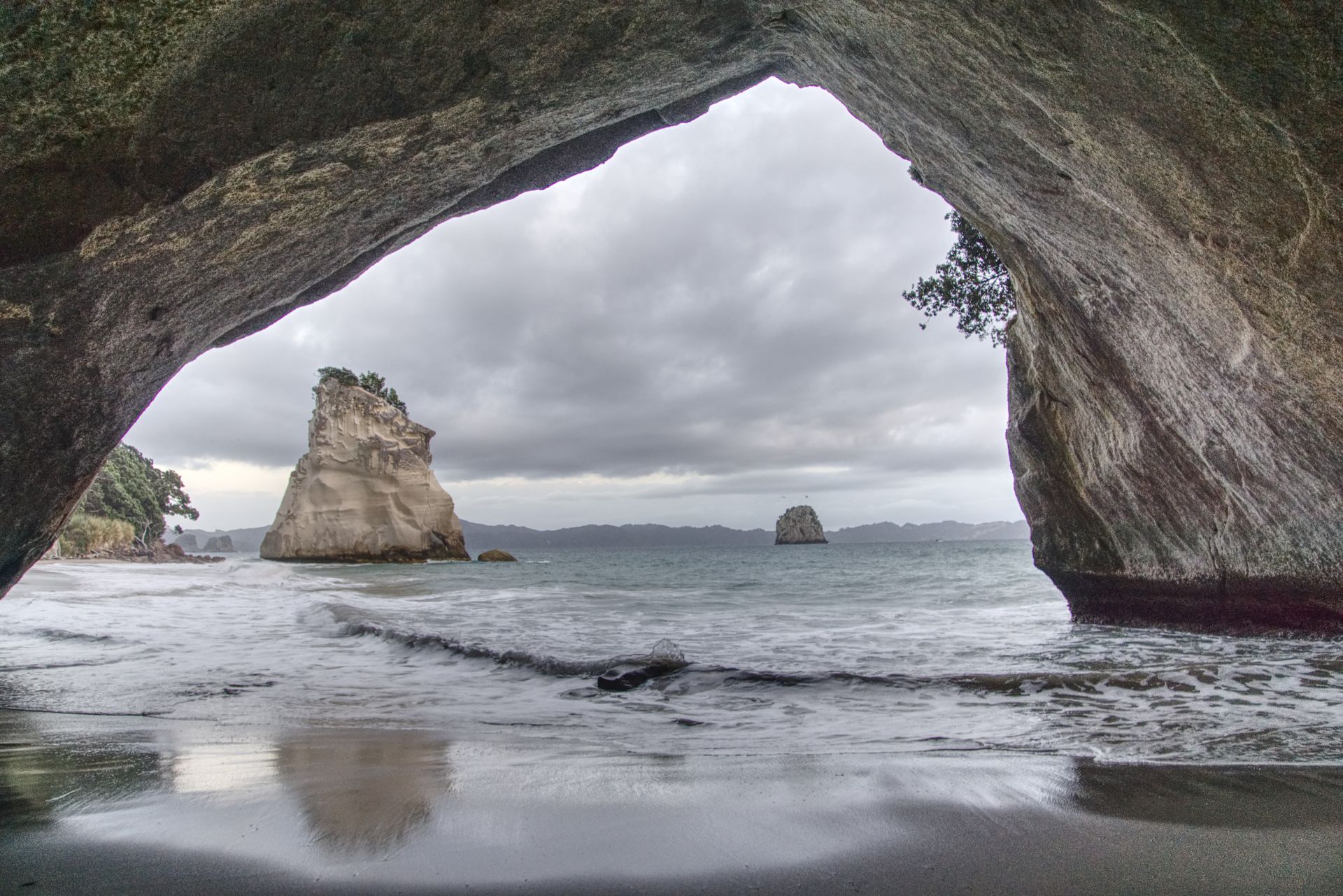
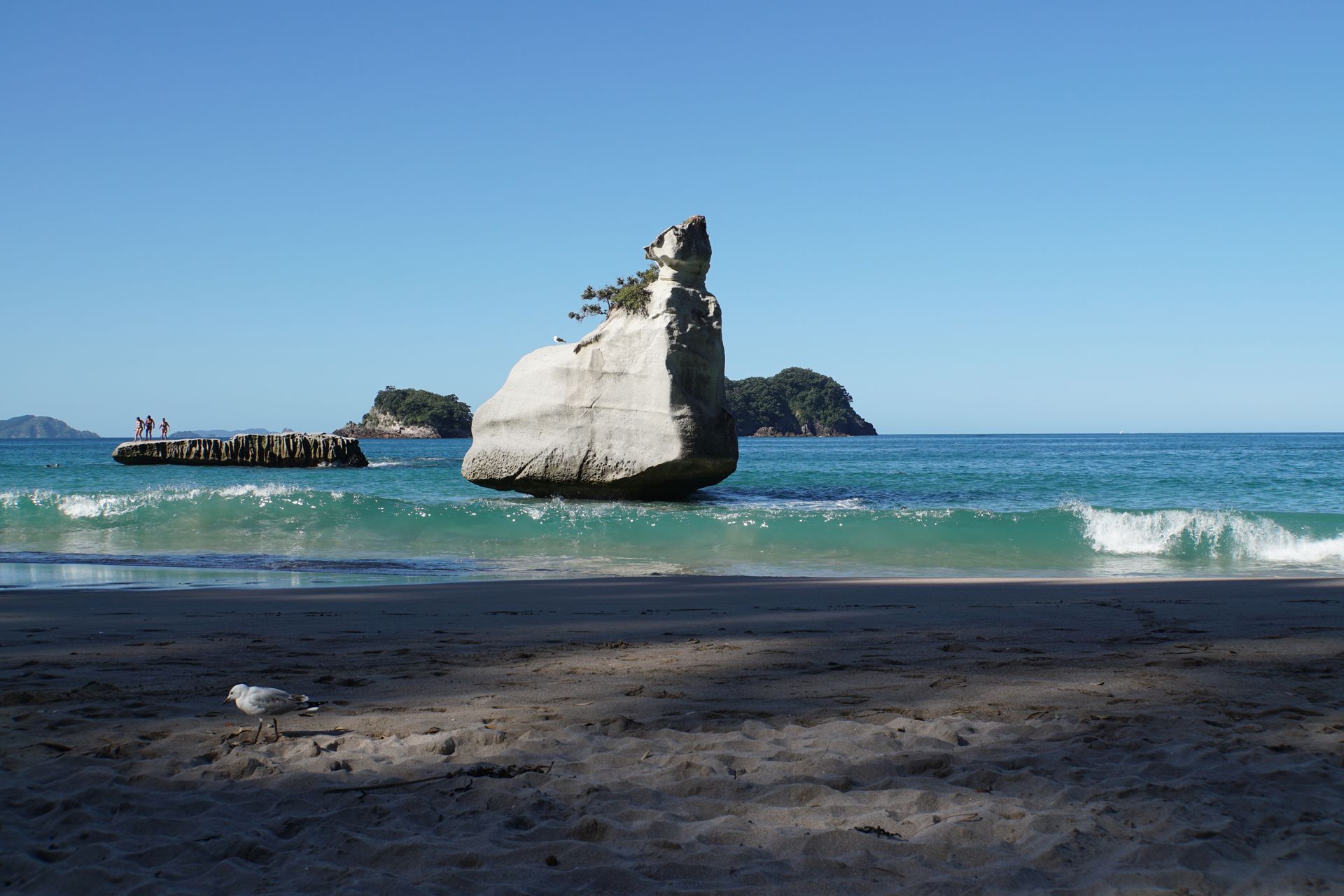
Te Horo Rock
Since the beach is full of people enjoying the sun and the comparatively warm water, we decide to come back here at sunrise the next morning to take photos without constantly having people walking into the frame. However, apparently we are not the only ones with this idea. The next morning, there are already about 15 other visitors on the beach, eagerly watching the sunrise, but getting up early was worth it for us.
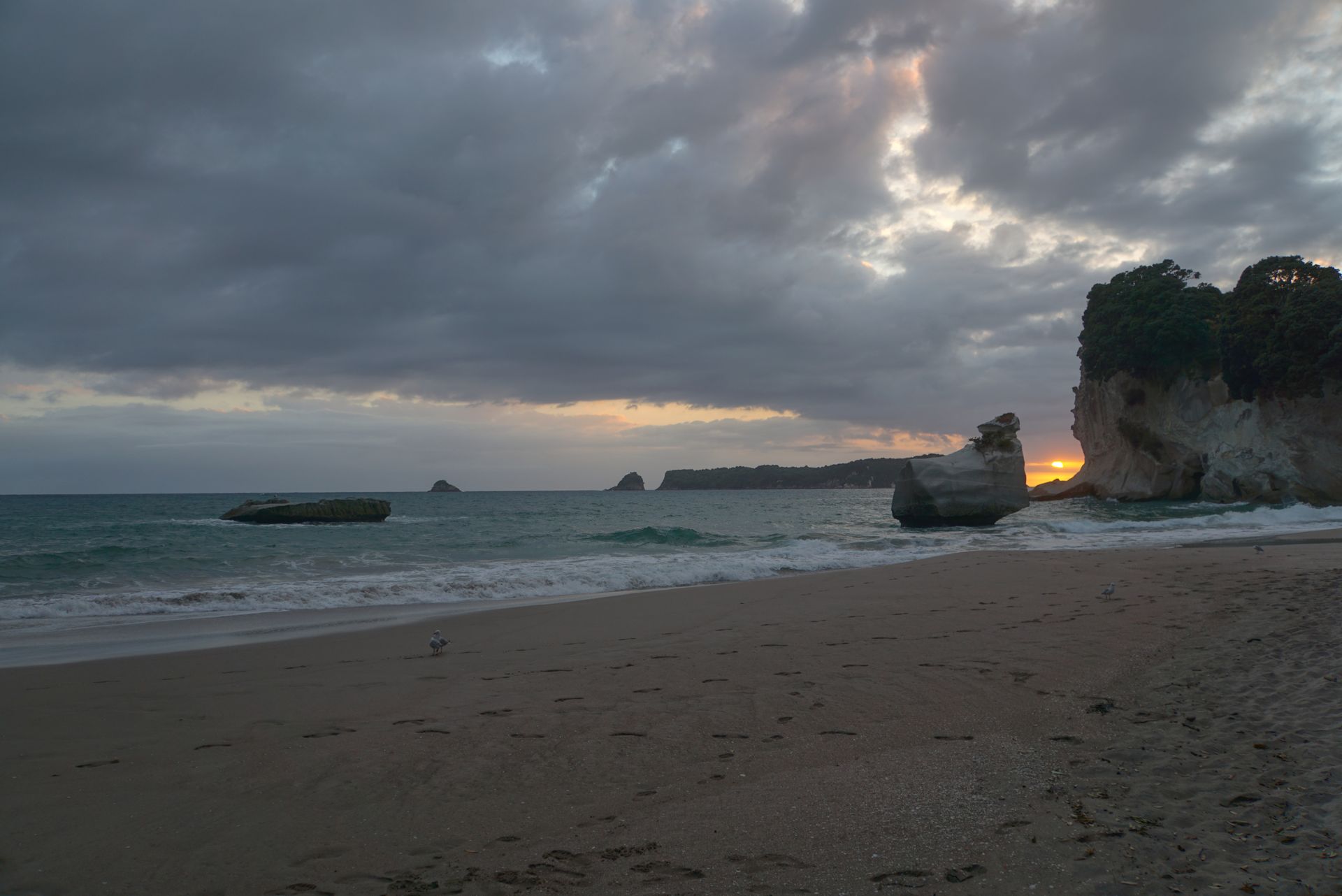
Sunrise behind Te Horo Rock
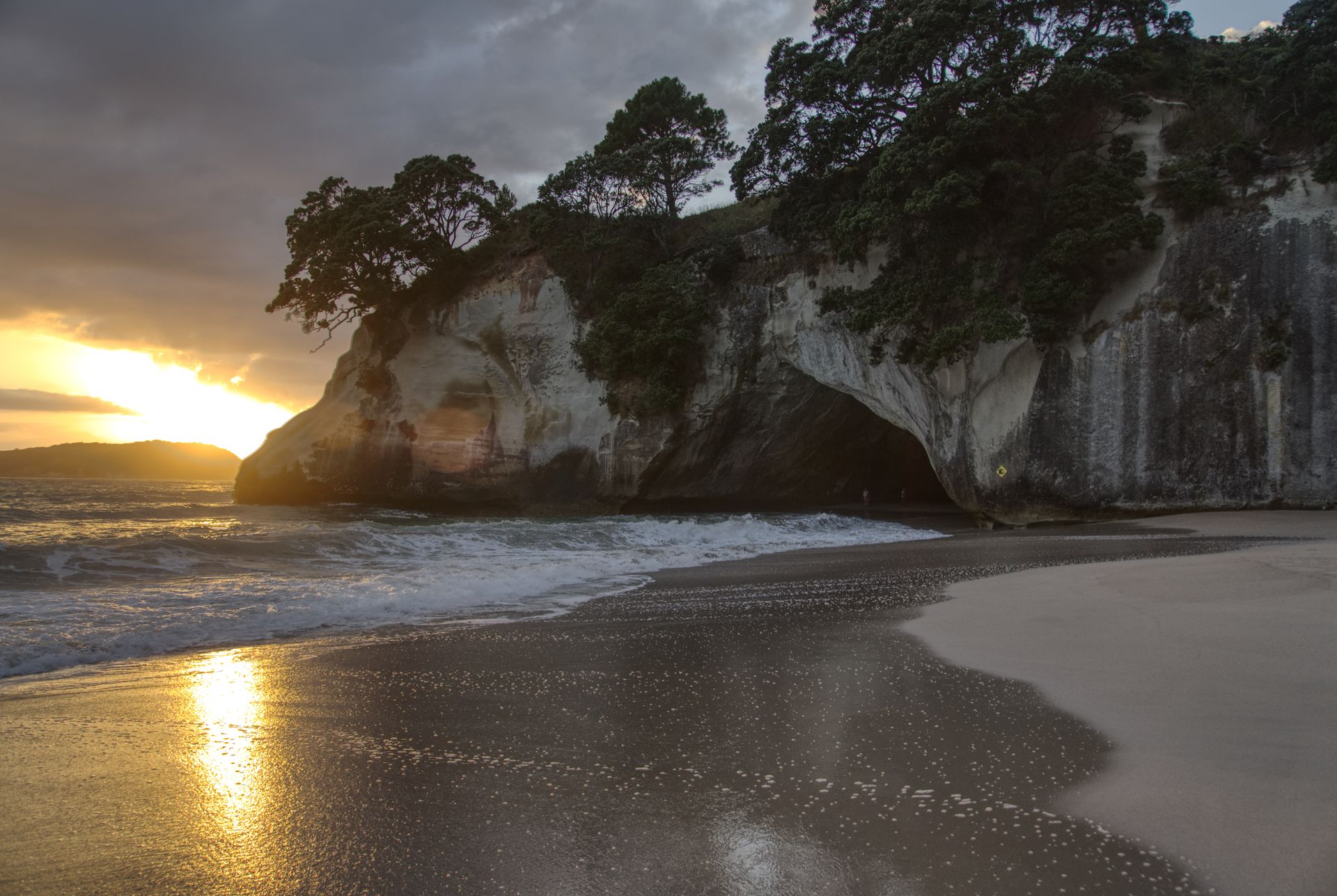
After a leisurely breakfast, we head south. Our route takes us through the towns of Coromandel Town and Thames. We only briefly stop here as we simply don't have enough time. Besides, both places are rather small, although Coromandel spreads enough charm to stay there longer. In Thames, we have fish and chips for lunch and have one last coffee with Lisa, who continues driving north towards Auckland from here. Our route takes us to Napier on the east coast of the North Island with a stopover for hiking in the Whirinaki Forest.
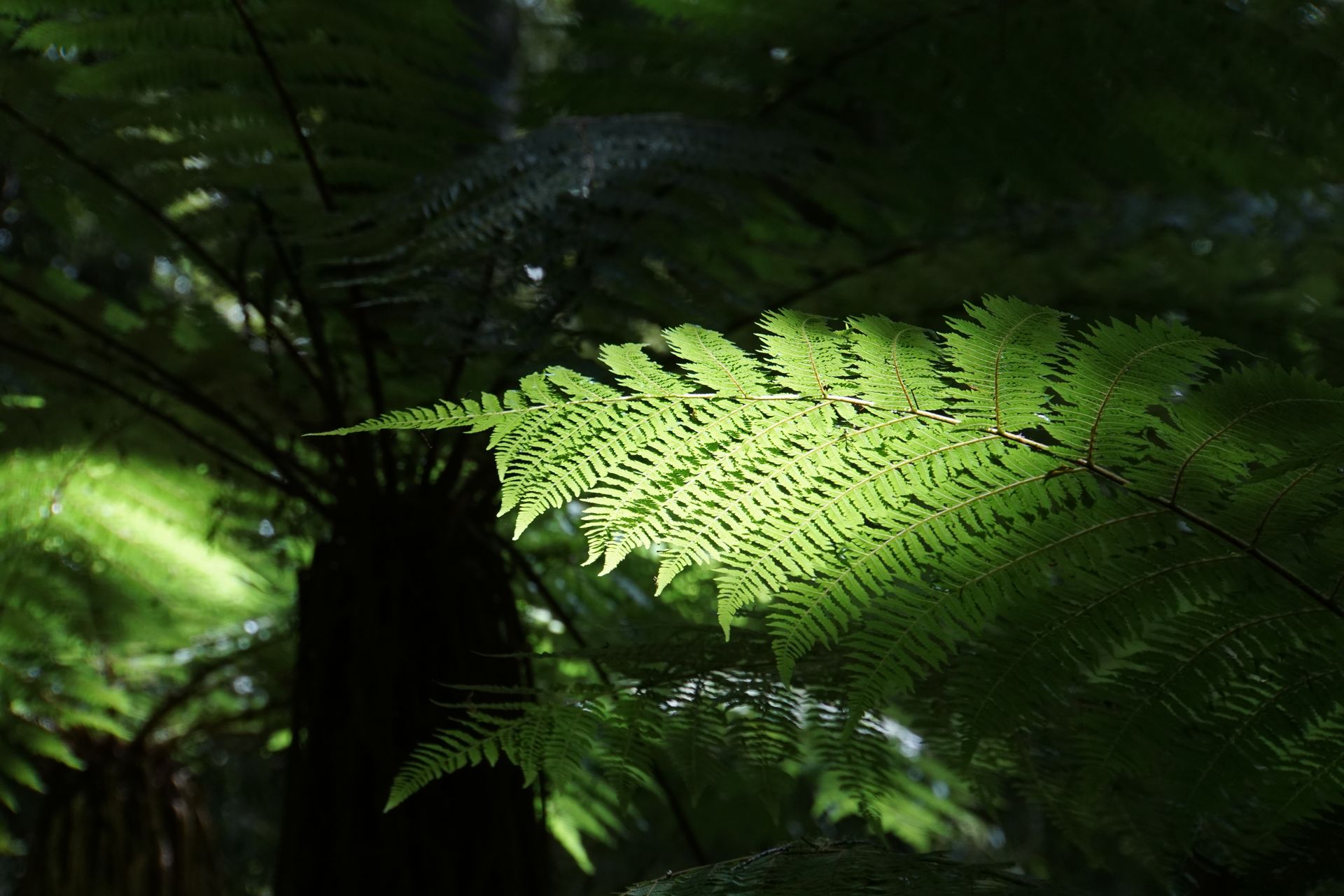
Ferns in Whirinaki Forest
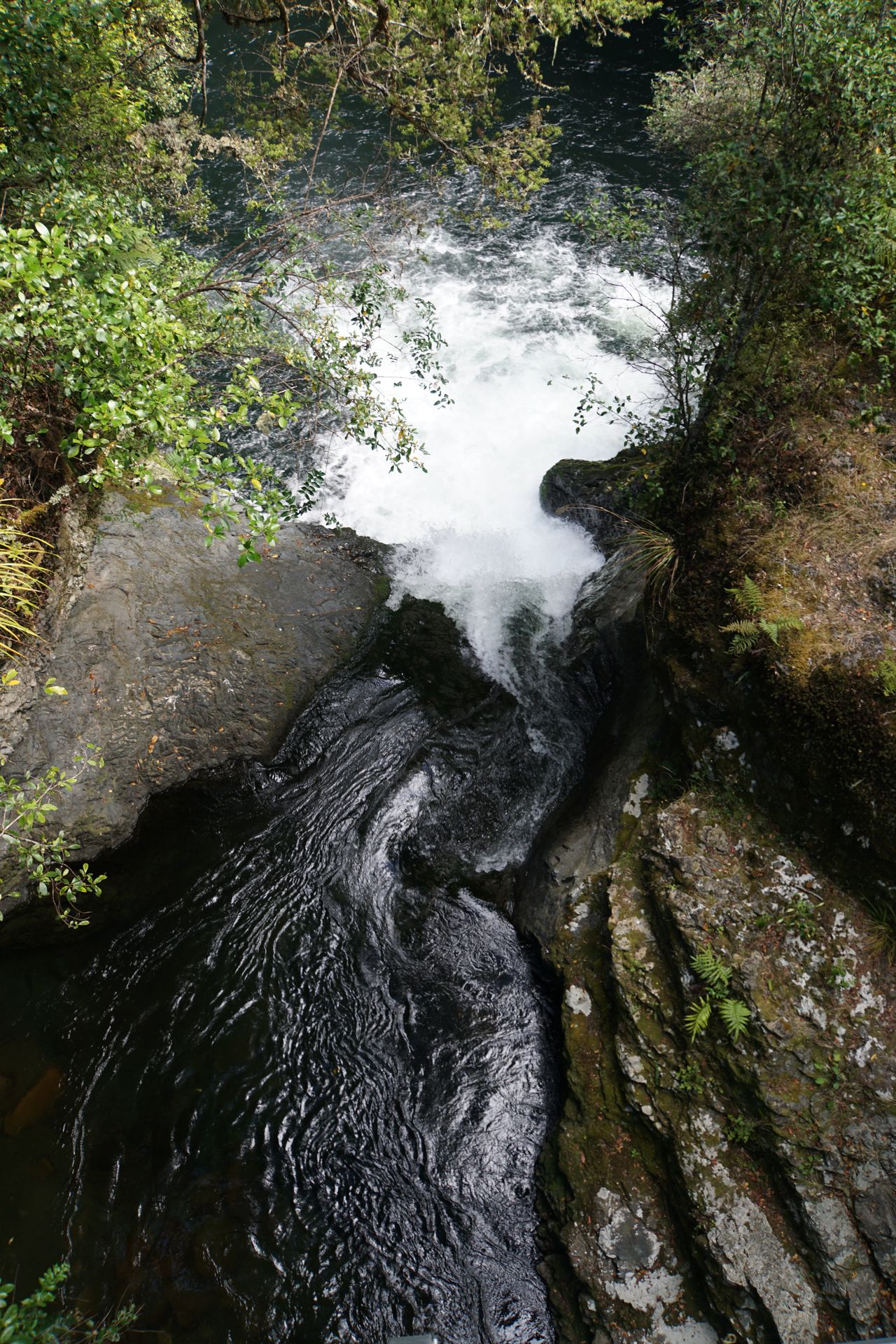
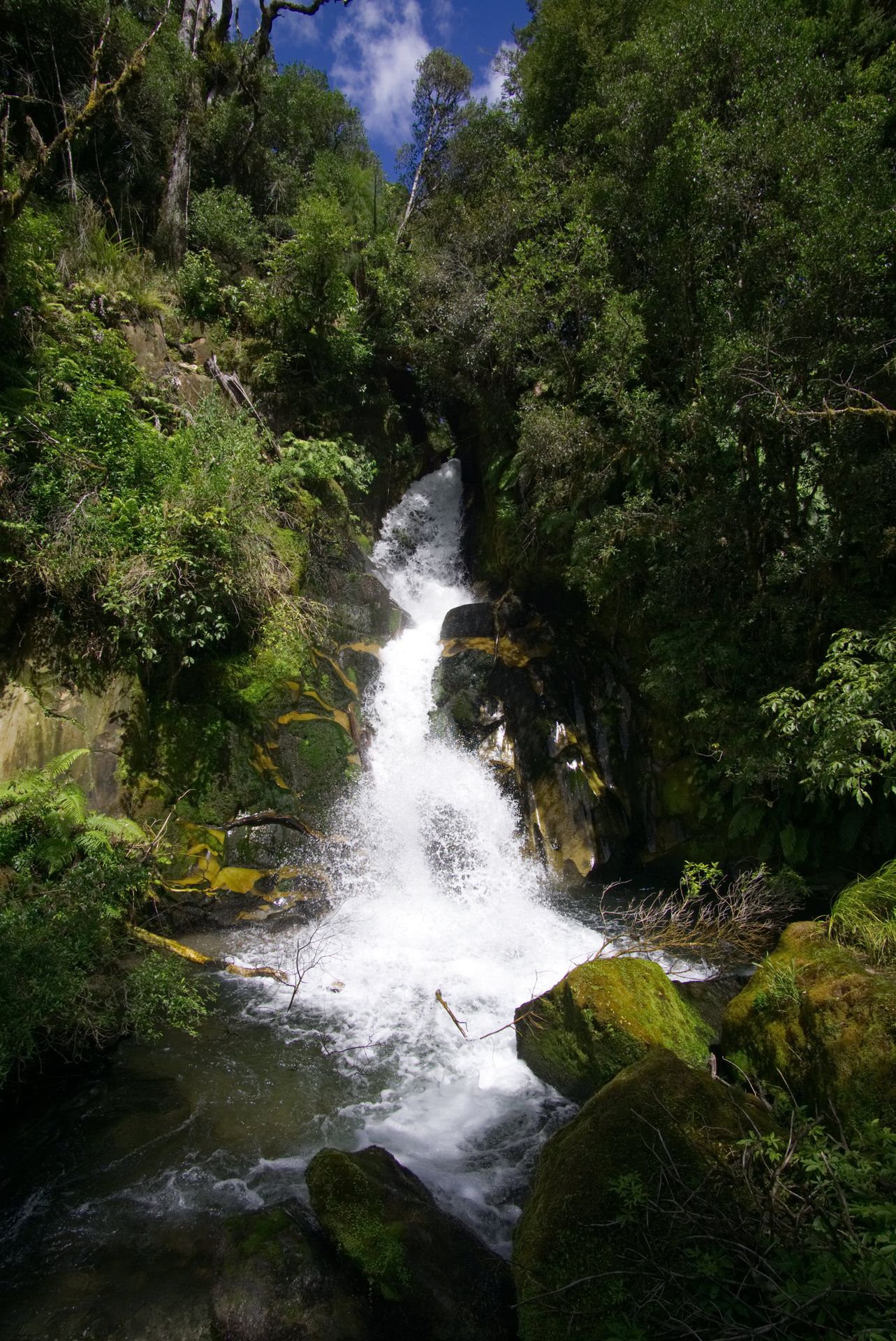
In the Whirinaki Forest, we take a beautiful three-hour hike through the fern-filled forest and pass by - as it should be - a waterfall. Slightly larger and more beautiful is the Waiatiu Waterfall shown above, which is about 30 minutes away from the parking lot and gets a visit from us on the spur of the moment. We then continue to Napier by car.
समाचार पत्रिका के लिए सदस्यता लें
उत्तर

यात्रा रिपोर्ट न्यूज़ीलैंड
